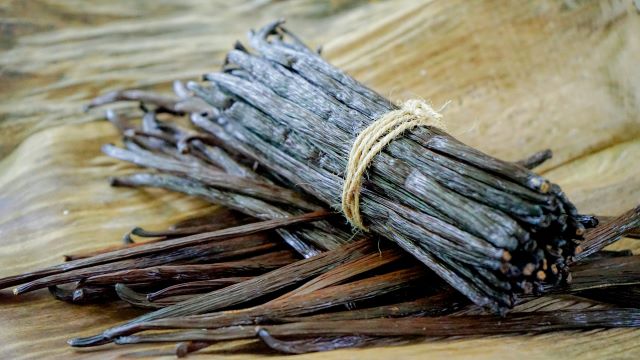By Salima Abdou Nourdine
MORONI, COMOROS — Amid the fragrant groves of Anjouan and Mohéli, golden flowers and vanilla vines flourish beneath the tropical sun. These humble crops—ylang‑ylang for perfume and vanilla for flavor—are no longer just crops. They are emblematic of a nation forging prosperity from its soil, fueling both economic revival and social cohesion.
“When a woman distills ylang‑ylang at dawn, she is preserving centuries of heritage and enabling her children’s schooling,” reflects Hajja Saïdou, a cooperative leader in Anjouan.
The Scented Powerhouse
Comoros is the world’s leading producer of ylang‑ylang essential oil, contributing roughly 60 percent of global supply. Alongside these fragrant blooms, vanilla vines climb the volcanic slopes—enriching aroma and income. Today, these spices account for around 80 percent of export revenues .
Local enterprises like Vaniacom Ltd, founded in 1999 and led by entrepreneur Sitti Chihabiddine, exemplify this boom. The company works with nearly 150 farmers, 80 percent of whom are women, producing 8 tons of organic vanilla annually . Their EU-certified pods fuel value addition—vanilla powder, syrups, even gourmet stores in Moroni.
Cooperative Strength, Female Empowerment
Across Anjouan, grassroots ylang‑ylang cooperatives are forming, boosted by the Government, EIF, UNDP, and ITC . Some co‑ops harness solar-powered distilleries, producing 400 liters a month, all destined for France’s perfumery industry.
Beyond harvest, cooperatives empower women through literacy, financial training, and microfinance . In one village, literate pickers confidently manage earnings, reinvesting in bakeries, honey ventures, and home-grown enterprises.
Global Trade, Local Impact
Thanks to the Economic Partnership Agreement and support from EU-funded APILE/ENFA projects, Comorian exporters are gaining footholds in European markets. More than 70 percent of ylang‑ylang oil now journeys to France, Germany, Italy, and the U.S.—with sustainable, wood-saving distillation methods earning international attention .
Further, ITC–UNDP collaborations helped cooperatives access $400,000 in trade financing , fueling equipment upgrades and enabling quality control that meets global standards.
Sustainability: A Delicate Balance
Despite gains, environmental fragility remains. Ylang‑ylang relies on sustainable forestry, and vanilla vines require disease-resistant stock . National efforts are underway to protect biodiversity, improve planting techniques, and ensure fair trade .
Toward a Brighter Future
In Mutsamudu’s port, where ylang‑ylang oils and vanilla bundles await shipment, hope is palpable. What were once smallholder fields fed by tradition are becoming engines of growth.
“Each blossom and pod carries more than aroma—it carries our children’s tomorrow,” notes Abdou Ahamadi, a cooperative president in Anjouan.
Comoros may be small in size, but its fragrant exports are making a mighty mark. By weaving spice with empowerment, this island nation is transforming longstanding tradition into new pathways of prosperity—and unity.
Sources:
- [EU Delegation – Ylang‑Ylang Export Growth]trade4devnews.enhancedif.org+4trade4devnews.enhancedif.org+4en.wikipedia.org+4countryaah.com
- [Givaudan Foundation – Women Empowerment in Ylang‑Ylang!]en.wikipedia.org+15givaudan-foundation.org+15eeas.europa.eu+15
- [Trade4Dev – Comoros Bloom: Cooperatives Rising]givaudan-foundation.org+15trade4devnews.enhancedif.org+15trade4devnews.enhancedif.org+15
- [EU Delegation – Vaniacom Vanilla Export Story]eeas.europa.eu
- [ITC News – Spice Value‑Chain Financing]trade4devnews.enhancedif.org+3trade4devnews.enhancedif.org+3intracen.org+3


